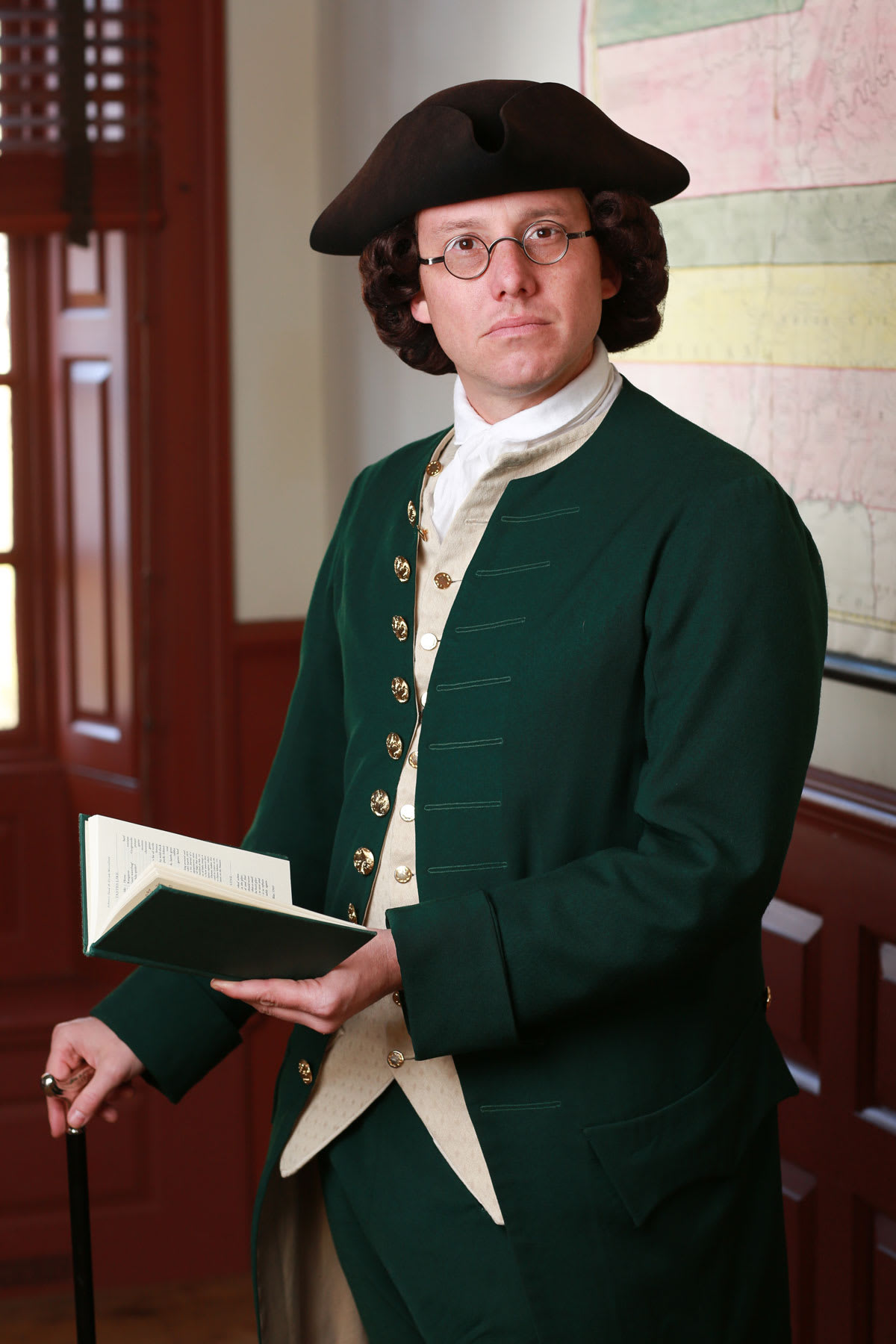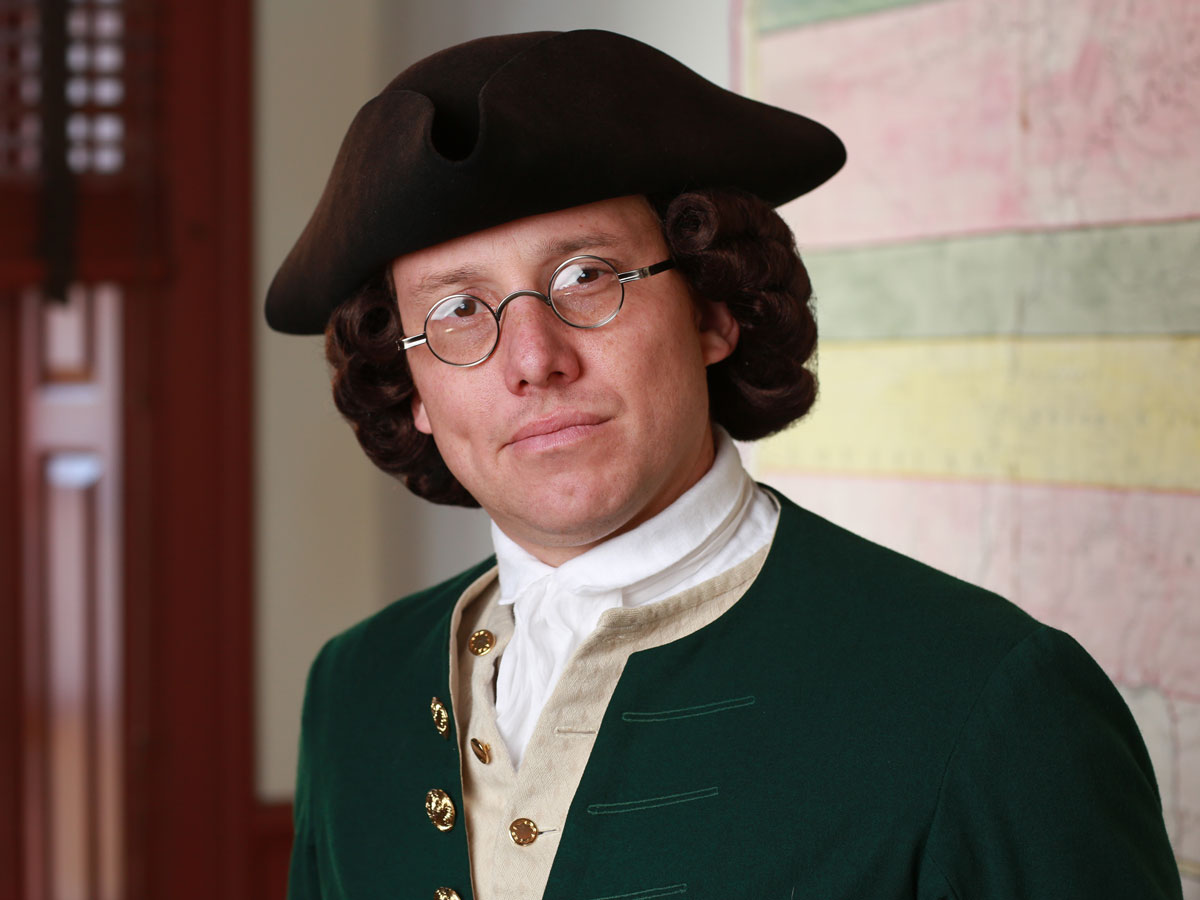George Mason is admittedly a lesser-known name in the founding father pantheon. Despite inspiring Jefferson’s Declaration of Independence and giving America its first Bill of Rights, his name is too often left on the cutting room floor of history. Why is this?
As someone who has had the privilege to bring this man to modern audiences, I’ve identified two basic reasons for this. First, his refusal to sign the Constitution and participate in the new Federal Government put him on the ‘losers’ side of history. Despite having very good reasons for his opposition and many contemporaries having similar issues with the Constitution, this seemed to taint Mason for future historians. And secondly, he didn’t want the fame. While it was inappropriate in this time to appear desirous of power and notoriety, many still sought such positions time and time again. Mason, however, had a true desire for “the happiness of independency and the blessings of a private station over the troubles and vexations of public service.” But despite being sidelined in most history books he still led a fascinating life and contributed to our American identity. With that in mind, I thought it would be fun to share a few facts about George Mason, both big and small, with you.
1. First Bill of Rights
If there is one thing that you should know George Mason for it is that he wrote the first modern bill of rights. Virginia’s Declaration of Rights was penned by Mason and delivered to the Fifth Virginia Convention on May 27, 1776. Beginning “That all Men are born equally free and independent and have certain inherent natural rights… among which are the enjoyment of life and liberty, with the means of acquiring and possessing property, and pursuing and obtaining Happiness and Safety,” it is clear to see that these words would go on to inspire many others in the Revolution.
The document would continue to enumerate basic rights of jurisprudence, representative government, as well as a freedom of religion and a free press. It combined elements already found in governments and past Bills of Rights with new ideas and philosophies. And while many of the ideas contained within were not wholly original, it was the first time that they would be enshrined in a government document. It is no wonder that it would go on to inspire other states’ constitutions, the French Declaration of the Rights of Mankind, and even our Federal Bill of Rights.
2. Early proponent of Virginia’s Wine Country
As early as 1759, Mason would invest in a plan to establish a wine industry in Virginia. Writing to encourage other prominent Virginians, Mason would buy shares into Maurice Pound’s plan to plant vines, purchase equipment, and make wine. While this was not ultimately successful, it did not deter Mason from buying a share in Philip Mazzei’s plans to set up vineyards 15 years later. This too was unsuccessful (perhaps in part due to the Revolutionary War) which meant that Mason did not see a successful wine industry in Virginia in his lifetime. He would just have to settle for his brandies distilled on his property, not a bad consolation if you ask me.

3. Not Anti-Constitutional
Mason may be famous for refusing to sign the Constitution, declaring that he would “sooner chop off his right hand” than sign it. Knowing that, one might assume that he was completely against a Federal government, but Mason was one of the key figures at the Constitutional Convention. One of the 5 most frequent speakers, Mason gave a passionate speech early on calling for a new constitution and stronger national power. However, by the end of the Convention he had several major objections. He would go on to write these objections beginning with the greatest, “There is no Declaration of Rights” as well as expressing concerns with the lack of clarity on the new Federal Judiciary. These would be published without his consent, thus cementing his reputation as a chief Anti-federalist. However, Mason would find some vindication. Ultimately Americans would also insist on the necessity of a Bill of Rights. The first ten amendments would become our Federal Bill of Rights (and the Judiciary Act of 1789 addressed some of Mason’s judiciary concerns). Once those were ratified, Mason ultimately conceded that with a few other amendments he could “cheerfully put his Hand & Heart to the New Government.”
4. Eyes to the West
The position held and the cause he fought for longest in his life was the settlement of western lands. The Ohio Company was created with the goal to settle westward and Mason was admitted as a partner in June of 1749. He would be elected as treasurer that September, a position that he would hold until his death in 1792. The Company tried to navigate Royal grants, agreements with local tribes, and competing claims from other companies/colonies. While throughout the years there were times they seemed close to achieving success, two wars, old governments crumbling, new ones being created, and much more proved insurmountable. Though, like his investments in the wine industry, Mason did not see success with the Ohio Company, he would work to see greater success in the settlement of western lands. From 1780 to 1784, there were efforts from Virginia to cede western lands to the Congress. Begun in Virginia by Mason, Madison, and others, it would ultimately be achieved by Jefferson in 1784 leading to his famous Northwest Ordinance of 1784. An act that would lead to settlement of the Northwest Territory and ultimately 5 US states.
Joseph Ziarko began working at Colonial Williamsburg in 2007 after graduating from Dickinson College with a degree in History and Theatre. He has been portraying George Mason as a Nation Builder since 2016. He is thankful to his parents and teachers for instilling a love of history in him.
Resources
The Papers of George Mason; Volume I-III, edited by Robert A. Rutland (Kingsport: Kingsport Press, 1970)
Pamela C. Copeland & Richard K. MacMaster The Five George Masons: Patriots and Planters of Virginia and Maryland, (Fairfax, VA, George Mason University Press) 2016
Jeff Broadwater George Mason: Forgotten Founder (Chapel Hill, NC, University of North Carolina Press) 2006
